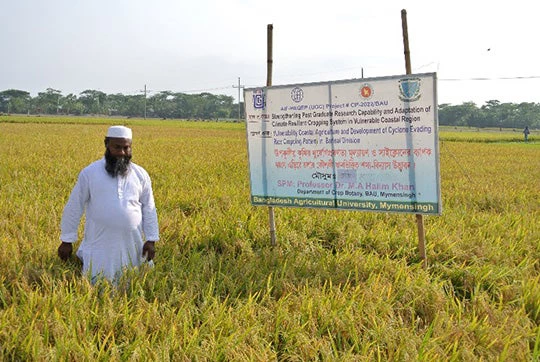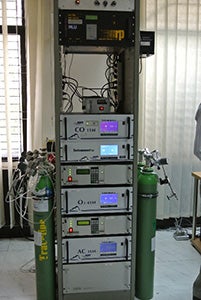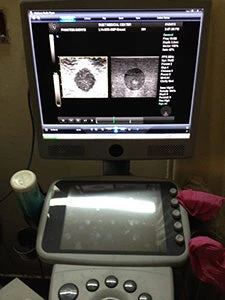
The Bangladesh government wants to enhance support for university research as a part of its strategy for higher education (Strategic Plan 2006-2026). Supported by the Academic Innovation Fund (AIF) under the Higher Education Quality Enhancement Project (HEQEP), researchers in Bangladeshi universities are conducting advanced research on some of the most pressing economic challenges in key sectors of the country such as agriculture, environment, and health. With upgraded research facilities and equipment, Bangladeshi faculties are publishing more on international scientific journals and training competent PhD graduates.

Established at DU
Now, the time is ripe for bringing university research to the next step.
Bangladeshi universities are now ready to work with partners to jointly explore new technologies and apply invented technologies to produce tailor-made solutions for Bangladesh – such as new vaccines, more productive cropping systems, better waste management, etc. Potentials for such research collaborations are enormous.

Breast Cancer Detection
Developed by BUET
At the project level, HEQEP will become a launching pad to initiate cross-sectoral collaborations with other World Bank funded projects to further strengthen research and development. Among them are National Agricultural Technology Project (NATP) of the Directorate of Agriculture Extension and Clean Air and Sustainability Environment (CASE) Project of the Directorate of Environment. AIF subprojects for health technologies also have the potential for collaborating with the government’s health sector agencies. Research and knowledge creation are an essential part of NATP and CASE. HEQEP has reached an agreement with NATP and CASE teams towards enhancement of cross-sectoral research collaborations across boundaries of projects and university researchers would participate in research networks in the agriculture and environment sectors. As more and more promising university research come up, HEQEP will continue fostering the culture of advance research in Bangladeshi universities and promoting intersectoral collaboration to redefine the role of universities in innovation eco-systems. We can reach new heights working together.
Examples of Research Subprojects Supported by AIF
Agriculture:
Improvement in vaccination for Foot & Mouth Disease (FMD)
- Six vaccine seeds have been developed and molecular characterization are ongoing.
- Virology, immunology, and bacteriology labs renovated and furnished with modern equipment
Improvement of production in animal husbandry
- Beef production of the native cattle has been improved through AI of semen from Brahma bull.
- Nutritional outline for native cattle fattenening has been developed and fodder germ-plasm center established.
- Laboratories are furnished with modern equipment such as PCR
New cropping system with short-duration crops for climate change resilience
- New cropping system with short-duration, high yield rice variety has been successfully piloted in the coastal area and increased crop production in the experimental fields
Development and dissemination of improved vaccination of Foot & Mouth Disease (FMD)
- All the circulatory FMD viruses in Bangladesh were characterized
- Whole FMD virus vaccine candidate developed and peptide vaccine candidate designed
- Several full-papers published in international peer-reviewed journals
Development of high-value crops
- A resourceful plant biotechnology lab established
- Large and fully equipped Germplasm Center was established
- In vitro regeneration protocols established for lettuce, potato and strawberry; in vitro germination and explants selection of carrot completed; and rapid multiplication of potato carried out
Dhaka University of Engineering and Technology
Improvement of industrial waste management practices
- Modern environmental laboratory was established
- Research collaboration network was established with industry stakeholders
Monitoring of air quality in Dhaka and other areas
- Air quality monitoring center was established with state-of-the-art measurement equipment
Bangladesh University of Engineering and Technology
Enhanced method of breast cancer detection system
- A research ultrasound machine is installed in a hospital
- 300+ patients were examined using the enhanced imaging technology
- Several papers were published in international journals


Join the Conversation